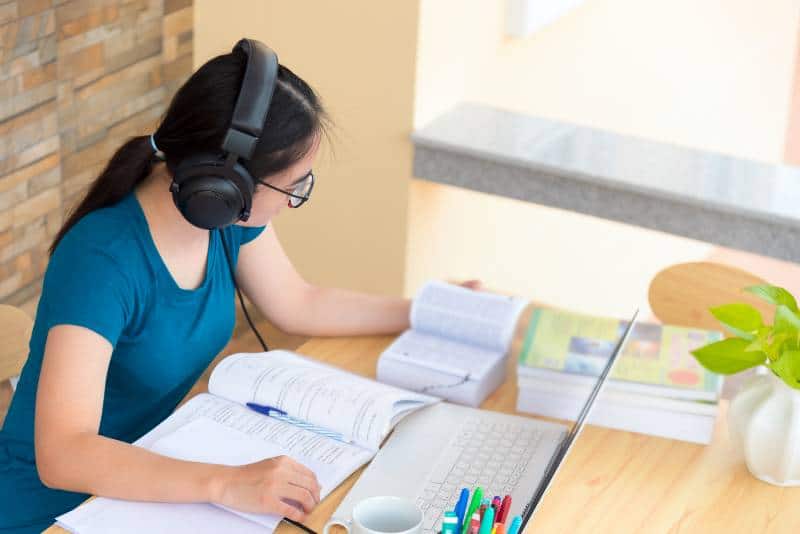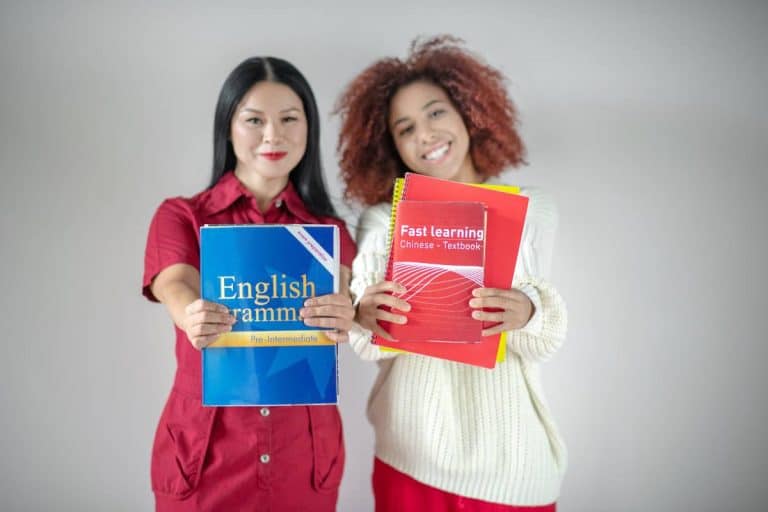Your Thai Phrasebook: An Expat’s Survival Guide
Are you an expat living in Thailand, or planning to visit the Land of Smiles soon? Knowing a handful of key Thai phrases can make your life a lot easier! To help get you started, we’ve rounded up some essential survival phrases that will come in handy during your travels and daily interactions with locals. From basic Thai phrases and greetings to conversation starters, we’ll cover it all – so if you’re ready to learn how to communicate comfortably and be able to ask for help when needed while navigating through the Kingdom of Thailand, let’s dive right into the essentials!
Thai is the mother tongue of the majority population in Thailand, accounting for about 53% of its people. Globally, approximately 39.8 million individuals speak Thai as their first language, making it an essential language to learn, particularly for expatriates.
Key Takeaways
- Thai language and culture place a significant emphasis on politeness. The usage of polite particles “krub” for men and “kha” for women at the end of sentences, and the application of formal and informal speech depending on the social context, are intrinsic to Thai communication. Understanding these subtleties can greatly improve your interaction with Thai people.
- Understanding cultural norms around language use can help avoid misunderstandings or accidental offenses
- Language learning is an active process. Using tools like language learning apps and engaging with Thai media can be very helpful.

Greetings in Thai
In Thai culture, greetings can be either formal or informal, depending on the relationship, context, and social status of the people involved. Here are some greetings you can use:
Formal greetings:
- “Sawasdee krub” (สวัสดีครับ): This is a formal way for males to say “Hello”. Krub (ครับ) is the polite particle used by men in Thai. You would use this greeting when addressing someone older or of a higher social status.
- “Sawasdee kha” (สวัสดีค่ะ): This is the equivalent for females. Kha (ค่ะ) is the polite particle used by women. Just like krub, you would use this greeting when speaking to someone older or of a higher social status.
- “Chao khun” (เช้าคุณ): This is a formal way to say “Good morning”. You can follow it with “krub” or “kha”, depending on your gender.
Informal greetings:
- “Sawasdee” (สวัสดี): This is a casual “Hello”. You can use it with friends, peers, and people of the same age or younger.
- “Sabaai-dii mai?” (สบายดีไหม): This means “How are you?” and is often used among friends and family members.
Appropriate responses
Responding to Thai greetings also varies depending on the context and formality:
Formal responses
- If someone greets you with “Sawasdee krub” or “Sawasdee kha”, you can respond with the same greeting, matching your gender: “Sawasdee krub” (if you’re male) or “Sawasdee kha” (if you’re female).
- If someone says “Chao khun” to you, you can reply with “Chao khun krub” or “Chao khun kha”, again depending on your gender.
Informal responses:
- If someone says “Sawasdee” to you, you can simply reply with “Sawasdee”.
- If someone asks “Sabaai-dii mai?”, you can respond with “Sabaai-dii” (I’m fine) or “Mai sabaai” (I’m not fine).
Remember, Thai culture places a lot of importance on respect for age and social status, so use more formal greetings when in doubt. And don’t forget to accompany your greetings with the traditional Thai wai gesture (placing your palms together at chest level and bowing slightly) as a sign of respect, especially when dealing with elders or those of higher social status.
Essential Everyday Phrases
Asking for Directions
Here are some essential Thai phrases you can use when asking for directions:
- “Kor thod krub/kha, hong thi ____ yoo tee nai krub/kha?” (ขอโทษครับ/ค่ะ ห้องที่ ____ อยู่ที่ไหนครับ/ค่ะ): Excuse me, where is the ____ room? You would fill in the blank with the type of room you’re looking for, like “nam” (น้ำ) for bathroom.
- “Thanon ni pai sai krub/kha?” (ถนนนี้ไปทางไหนครับ/ค่ะ): Which way does this road go? This is a general question you can use when you’re lost.
- “_____ yoo tee nai krub/kha?” (____ อยู่ที่ไหนครับ/ค่ะ): Where is ____? Fill in the blank with the place you’re looking for.
Ordering Food and Drinks
When ordering food or drinks in Thai, here are some useful phrases:
- “Chan/Phom ao _____ krub/kha.” (ฉัน/ผม ขอ ____ ครับ/ค่ะ): I would like _____. Fill in the blank with the name of the dish or drink you want.
- “Kor check bin duay krub/kha.” (ขอเช็คบิลด้วยครับ/ค่ะ): Can I have the bill, please? This is useful when you’re ready to leave a restaurant.
- “Ahan ni pet mai krub/kha?” (อาหารนี้เผ็ดไหมครับ/ค่ะ): Is this food spicy? Useful to know if you can’t handle spicy food.
Shopping and Bargaining
In a marketplace or when bargaining, these phrases might come in handy:
- “Ra ka tao rai krub/kha?” (ราคาเท่าไหร่ครับ/ค่ะ): How much does this cost?
- “Lot ra ka dai mai krub/kha?” (ลดราคาได้ไหมครับ/ค่ะ): Can you reduce the price?
- “Chan/Phom sia money krub/kha.” (ฉัน/ผม เสียเงินครับ/ค่ะ): I don’t have enough money. This phrase can be useful when bargaining.
Asking for Help
If you need assistance in Thailand, these phrases will be useful:
- “Kor thod, chan/ phom mi panha krub/kha.” (ขอโทษฉัน/ผมมีปัญหาครับ/ค่ะ): Excuse me, I have a problem.
- “Chan/Phom mai khao jai krub/kha.” (ฉัน/ผมไม่เข้าใจครับ/ค่ะ): I don’t understand. This is especially useful if someone is speaking too fast or using complex language.
- “Kor thod, chan/phom long laew krub/kha.” (ขอโทษฉัน/ผมหลงแล้วครับ/ค่ะ): Excuse me, I’m lost.
Remember, as with greetings, your language use should be appropriate for the age and social status of the person you’re talking to. When in doubt, using more formal language is often the safer choice. Also, Thais greatly appreciate when foreigners attempt to speak their language, so don’t hesitate to try these phrases out!
Polite Expressions
Saying Thank You and You’re Welcome
In Thai, saying thank you and you’re welcome is quite straightforward:
- “Khob khun krub” (ขอบคุณครับ) or “Khob khun kha” (ขอบคุณค่ะ): This means “Thank you”. You would use “krub” if you’re male and “kha” if you’re female.
- “Yin dee krub” (ยินดีครับ) or “Yin dee kha” (ยินดีค่ะ): This means “You’re welcome”. Again, “krub” is used by males and “kha” by females.
Example: If a shopkeeper hands you the item you purchased, you could say “Khob khun krub/kha” (Thank you) and they might reply “Yin dee krub/kha” (You’re welcome).
Apologizing
The Thai language has different ways to apologize, based on the level of the offense:
- “Kor thod krub” (ขอโทษครับ) or “Kor thod kha” (ขอโทษค่ะ): This means “I’m sorry”. It’s used for minor offenses or to get someone’s attention.
- “Chan/Phom khor tort krub/kha” (ฉัน/ผมขอโทษครับ/ค่ะ): This is a more serious apology. It translates as “I apologize”.
Example: If you accidentally bump into someone, you can say “Kor thod krub/kha” (I’m sorry). If you have done something more serious, like made a mistake that cost someone else, you could say “Chan/Phom khor tort krub/kha” (I apologize).
Giving Compliments
Giving compliments in Thai can be done with these phrases:
- “Suay” (สวย) or “Lor” (หล่อ): This means “Beautiful” for females and “Handsome” for males.
- “Khaaw jai” (เข้าใจ): This means “Smart” or “Intelligent”.
- “Narak” (น่ารัก): This means “Cute”.
Remember, use “krub” or “kha” at the end of your sentences for politeness.
Example: If you see a friend who is dressed nicely, you might say “Suay krub/kha” or “Lor krub/kha” (You look beautiful/handsome). If your friend has explained something complicated to you clearly, you could say “Khaaw jai krub/kha” (You’re smart).
As always, make sure to use these expressions appropriately, and when in doubt, opt for a more formal tone.
Emergency Phrases
Getting Medical Help
In an emergency where you need medical help, here are some Thai phrases that may be useful:
- “Kor thod, chan/phom mee kwam suk yang rai krub/kha.” (ขอโทษ ฉัน/ผม มีความสุขยังไงครับ/ค่ะ): Excuse me, I’m not feeling well.
- “Chan/phom tong kan paet krub/kha.” (ฉัน/ผม ต้องการแพทย์ครับ/ค่ะ): I need a doctor.
- “Kor thod, yuu tee nai roong payabaan krub/kha?” (ขอโทษ, อยู่ที่ไหนโรงพยาบาลครับ/ค่ะ): Excuse me, where is the hospital?
Contacting Police
If you need to contact the police, these phrases might be helpful:
- “Kor thod, chan/phom tong kan tamruat krub/kha.” (ขอโทษ, ฉัน/ผม ต้องการตำรวจครับ/ค่ะ): Excuse me, I need the police.
- “Mee panha krub/kha.” (มีปัญหาครับ/ค่ะ): There’s a problem.
- “Chan/phom duu anuyat krub/kha.” (ฉัน/ผม ดูอนุญาตครับ/ค่ะ): I’ve witnessed a crime.
Essential Safety Phrases
Here are a few safety phrases that you should know:
- “Chuay duay krub/kha.” (ช่วยด้วยครับ/ค่ะ): Help me.
- “Kor thod, khun mee nam bplao krub/kha?” (ขอโทษ, คุณมีน้ำเปล่าครับ/ค่ะ): Excuse me, do you have drinking water?
- “Thi ni an toan mai krub/kha?” (ที่นี่ ปลอดภัยไหมครับ/ค่ะ): Is this place safe?
Remember, these phrases are for emergency use. They can be invaluable in a critical situation and can potentially save a life. Always be sure to have local emergency numbers on hand too. As of my knowledge cutoff in September 2021, the general emergency number in Thailand is 191. For medical emergencies, it’s 1669. Be sure to check for any updates or changes upon your arrival in Thailand.
If you’re a Thai language novice and want to explore some resources to enhance your learning, check out this interesting article that talks about the essential resources available. The article delves deep into the various resources with detailed explanations. From apps to podcasts, books, and more, the write-up covers the best options for Thai language novices. Be sure to give it a read and find something that works for you!
Cultural Notes
Understanding Levels of Politeness
Thai language and culture place great emphasis on varying levels of politeness, which can be shown through different forms of speech and the use of specific particles.
- Polite Particles: Using polite particles like “krub” (ครับ) for men and “kha” (ค่ะ) for women at the end of sentences indicates respect and is an integral part of formal speech.
- Formal and Informal Speech: The level of formality in speech changes depending on the context and the relationship between the speaker and listener. For example, informal speech might be used among friends, while more formal language is used when addressing elders, superiors, or people of higher social status.
- Pronouns: There are multiple pronouns for “I” and “you” in Thai, and the use of each changes depending on the social context and the relationship between speakers. For instance, “phom” (ผม) and “chan” (ฉัน) both mean “I”, but “phom” is generally used by males and “chan” by females. There are also more formal and informal variants of these pronouns, and even different pronouns that can be used within families or with close friends.
Cultural Etiquette in Language Use
In Thai culture, the use of language plays a key role in showing respect, maintaining harmony, and adhering to societal norms.
- Respect for Elders and Superiors: Thais place a high value on respect for elders and those of higher social status. This is often reflected in their language use, such as using more formal speech and polite particles when addressing these individuals.
- Avoiding Confrontation: The Thai concept of “kreng jai” (เกรงใจ) refers to the cultural practice of considering others’ feelings and avoiding actions that might impose or cause discomfort. This is often reflected in indirect communication styles and the use of softer, more polite language to avoid direct criticism or confrontation.
- Wai Gesture: The traditional Thai “wai” greeting, which involves pressing your palms together at chest level and bowing, is often used in conjunction with certain phrases. The level of the hands and the depth of the bow in the wai can change depending on the relative social status of the Thai person being greeted. It is generally reciprocated but not expected from foreigners, though it’s appreciated.
- Titles and Names: Thais often use the title “Khun” (คุณ) before a person’s first name as a polite form of address, similar to “Mr.” or “Ms.” in English. Using just the first name without a title can be seen as too casual or even disrespectful in formal situations.
- Royal Language (Rachasap): A unique feature of the Thai language is the use of Rachasap, or royal language, when referring to the royal family and their actions. This special vocabulary is distinct from the common Thai language and is a mark of deep respect for the monarchy.
Remember, navigating the subtleties of politeness levels and cultural etiquette in Thai words and language use can be complex, but Thais are generally understanding and appreciative of foreigners making an effort to learn and respect their customs.
Practice and Immersion
Tips on Practicing Thai
- Start with Basics: Start with basic phrases like greetings, numbers, days of the week, common adjectives, and verbs. Try to get a good grasp of Thai pronunciation, which includes five different tones that can change the meaning of basic Thai words.
- Use Language Learning Apps: Language learning applications like Duolingo, Babbel, or Rosetta Stone can help reinforce your Thai language skills through structured lessons and exercises.
- Watch Thai Media: Watching Thai movies, TV shows, and YouTube videos, or listening to Thai music and radio, can be an enjoyable way to familiarize yourself with the language, pronunciation, and accents. Subtitles can be a helpful tool when starting.
- Take a Course or Hire a Tutor: Enrolling in a Thai language course or hiring a tutor can provide a structured learning path and give you the opportunity to practice and get immediate feedback.
- Practice Speaking and Listening: Find a language exchange partner or join a language learning group where you can practice speaking and listening in Thai. This could be online or in person. Regular practice is key to improving fluency.

Survival Thai Phrases for Expats FAQs
How can these phrases help me in daily life as an ex-pat in Thailand?
These most basic Thai phrases can be invaluable in everyday situations, such as ordering food at a restaurant or asking for directions. Knowing how to say “hello” and “thank you” can also go a long way toward building positive relationships with locals.
Will the article include pronunciation guides for the phrases?
Yes, the article includes pronunciation guides for each phrase so that you can practice and get a feel for how to pronounce them properly. Additionally, there are audio recordings of native Thai speakers saying the phrases, which can provide further context and help with an accent.
Are there any resources recommended for further learning?
Yes, there are many language learning resources available online, such as language learning applications, Thai media for practicing listening and speaking, or courses or tutors that can provide a structured learning path. Additionally, engaging in conversation with native speakers is an invaluable way to learn the language. Taking part in forums or social media groups focused on learning Thai can also be helpful.
How can I practice these phrases effectively?
Practicing with native speakers is the best way to ensure that you’re getting the pronunciation right and using the phrases in an appropriate context. Additionally, listening to podcasts or watching videos of native Thai speakers can help understand local dialects and accents. Regular practice is key to becoming more fluent in Thai.
Are these phrases applicable all across Thailand?
For the most part, yes. These are common phrases that will be understood by Thai speakers all across Thailand. However, there may be some regional dialects and variations in pronunciation or word usage that you should be aware of when traveling to different parts of the country. It’s always a good idea to brush up on local dialects if you plan to
Conclusion
Language learning is an active process and applying it in daily life is a great way to strengthen your understanding of the Thai language and culture. Not only will you understand the more nuanced components of communication but it will also help build relationships with Thai people.
Take what you have learned here, join language classes, practice using survival phrases, dive into authentic conversations with native speakers; open yourself up to the amazing experiences this journey can offer. Better adaptation comes with understanding cultural norms and etiquette; applying tips like politeness particles and appropriate use of informal or formal speech will make understanding each other easier.
Adapting to another country takes time and effort; so don’t get discouraged if progress seems slow at first! It can take a while for everything to start making sense, but if you persevere it can lead to fantastic opportunities in the future. If living in Thailand is something that interests you, then come join us! Subscribe to our newsletter for the best information about living in Thailand or contact us for added support as you make this exciting transition




